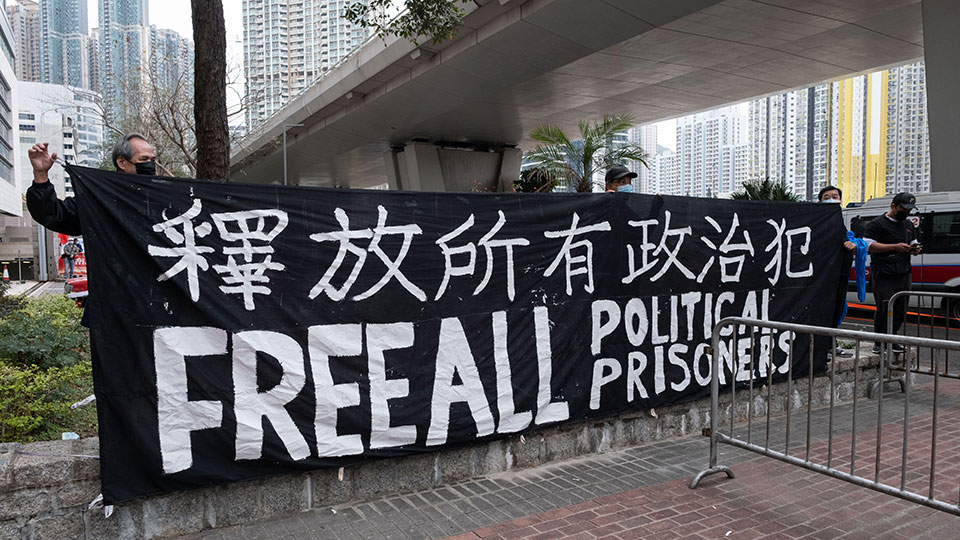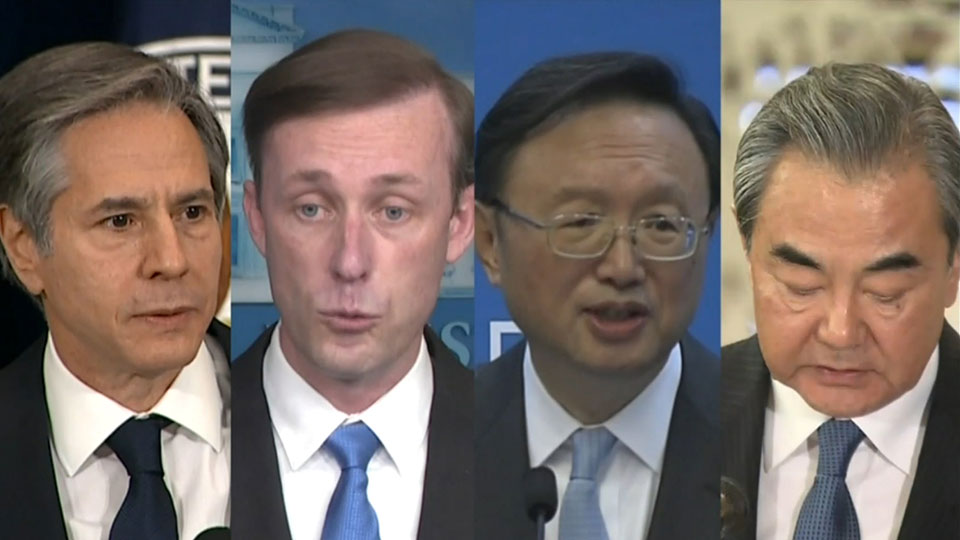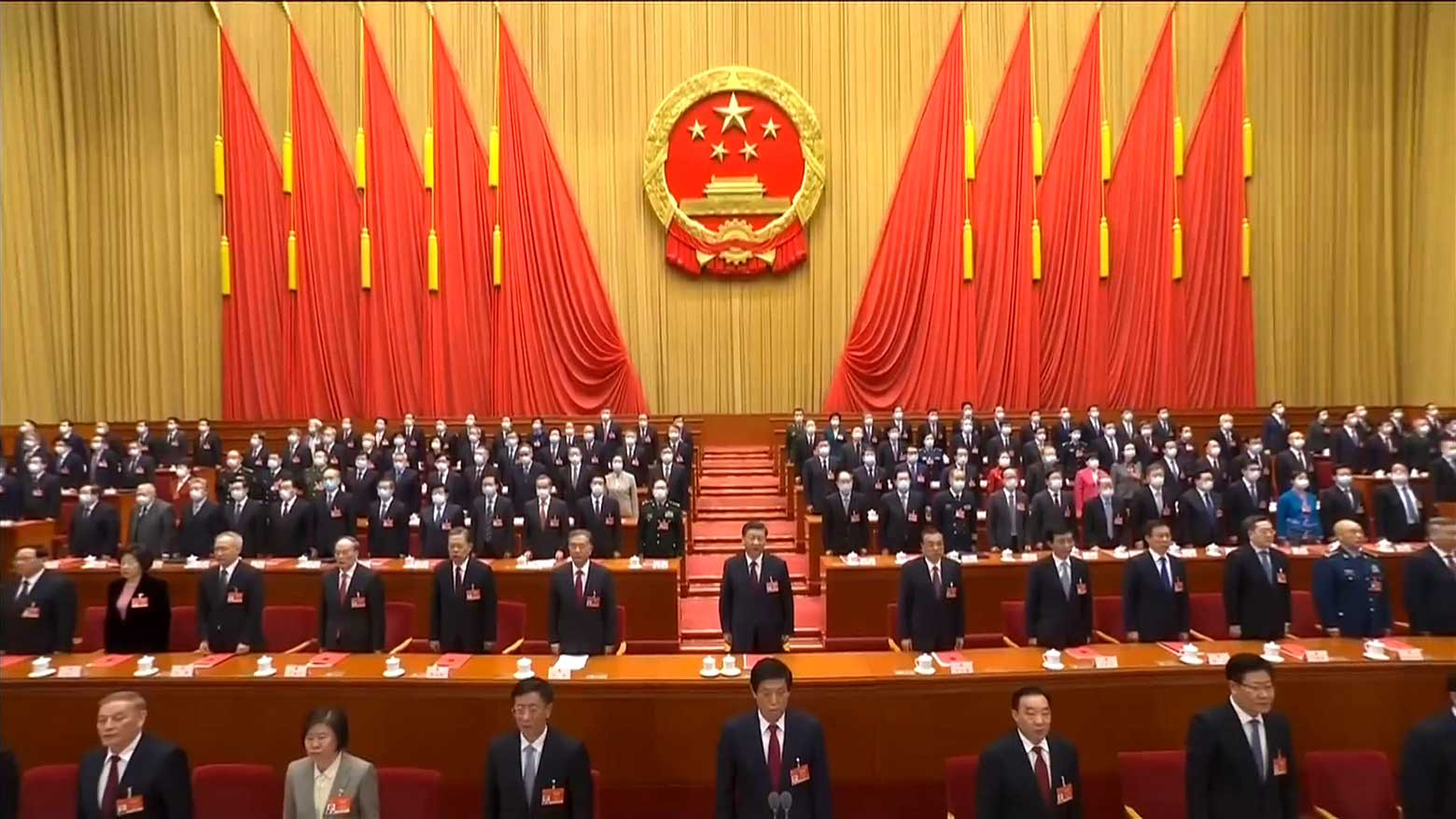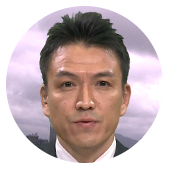The move was supported with 2,895 votes in favor, none against and one abstention. It puts further pressure on democracy activists and is set to ensure that Hong Kong’s leaders are all backed by the Chinese Communist Party.
The new system will apply to the selection process. A panel will screen candidates for Hong Kong’s election committee, the chief executive, and Legislative Council. Further details are to be announced at a later date.

Professor Kurata Toru, a Hong Kong politics expert at Tokyo’s Rikkyo University, says Beijing wants to ensure Hong Kong’s legislature backs its administration. "China implemented the national security law for Hong Kong last June, aiming to suppress demonstrations. Now, President Xi Jinping is taking a further step to increase the pressure on the pro-democracy movement," he says. “The latest move is aimed at systematically reducing the possibility of anyone from the pro-democracy camp winning in future elections, as well as suppressing the will of the people.”
Pro-democracy lawmakers in the Legislative Council have been strongly opposed to bills and policies that the Hong Kong government has tried to introduce. In some cases, they have forced proposals to be scrapped or withdrawn, with public opinion also playing a role.
Kurata says that kind of opposition is finished under the new system. “It is a very serious problem for the pro-democracy camp,” he notes. “Their decades-long struggle to democratize the territory is effectively over and now, Hong Kong is more like China.”
International concerns are reflected in British Foreign Secretary Dominic Rabb’s comments that the reforms “hollow out the space for democratic debate” in Hong Kong. A United States State Department spokesperson described the move as "a direct attack on Hong Kong's autonomy, its freedoms and democratic processes."
China-US relations
The seven-day congress also addressed foreign relations. Premier Li Keqiang has sent signals that Beijing wants to ease tensions with the US. He told a press conference last week that China hopes for dialogue.
On the final day of the congress, Beijing and Washington announced what could be the first step of that process. US Secretary of State Antony Blinken will meet with senior Chinese officials in Alaska on March 18 – the first face-to-face diplomacy since President Joe Biden's inauguration

Blinken says he plans to raise concerns about human rights and security in frank terms. For their part, China's leaders made a show of their determination to safeguard sovereignty and national interests at the congress. There was lot of finger-pointing at US interference.
Defense spending up by 6.8%
Another key function of the congress is to set budgets, with China's defense spending closely scrutinized by the international community. This year's defense budget is around 1.35 trillion yuan, or nearly $210 billion, an increase of 6.8 percent, aiming to achieve a “world class” military.
Concerns about a lack of transparency in the outlays are highlighted by experts who say China's actual military expenditures are likely to be much larger than disclosed.
Ohara Bonji, a senior fellow at the Sasagawa Peace Foundation and a former member of Japan’s Maritime Self-Defense Force, is an expert on Chinese military affairs. He says the budget excludes research and development costs, and does not include the purchase of weapons from other countries. The budget itself "does not show the overall picture of the military buildup," he says, urging China to disclose more details.
Post-pandemic recovery
Chinese leaders unveiled an economic growth target exceeding six percent for this year. Last year’s congress didn't set one at all due to the coronavirus pandemic. The 2021 target sits below the consensus of analysts who say growth could beat eight percent. According to Premier Li, "A target of over six percent will enable all of us to fully devote energy to promoting reform, innovation, and high-quality development."
While there is a target in place for this calendar year, none was set as part of China’s five-year economic plan. A senior state official says this allows policymakers more room to account for uncertainties and respond to changes. The 2021-2025 plan aims to implement a "dual circulation" development strategy that focuses on boosting both its domestic and international markets.
Communist Party milestone
This year marks the 100th anniversary of the founding of the Chinese Communist Party. China specialist Professor Takahara Akio of the University of Tokyo's Graduate School of Public Policy says the party’s control and President Xi’s hold on power go hand-in-hand.
“Stability for President Xi means people follow the rule of the Chinese Communist Party. He will strengthen the party’s rule domestically, aim to enhance the country's prestige overseas, and make people look up to China,” says Takahara.


